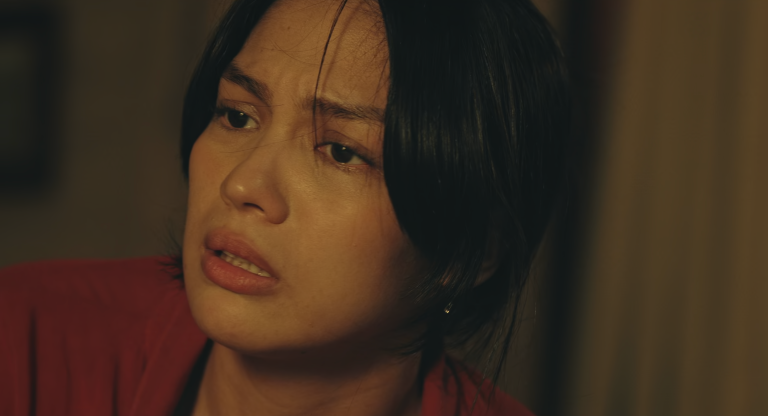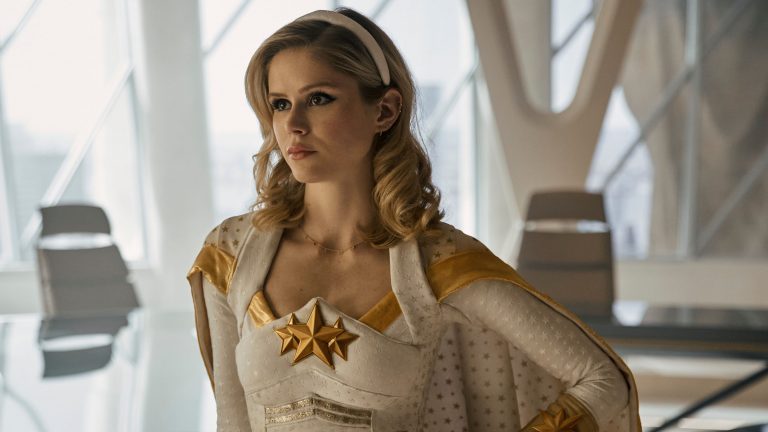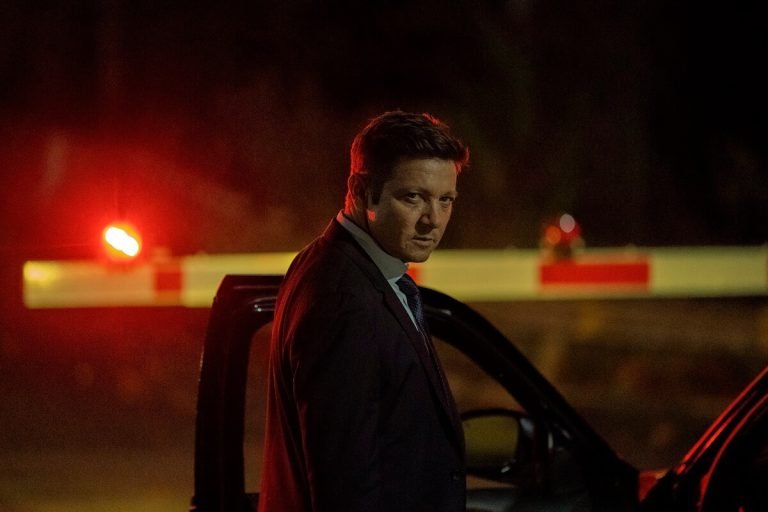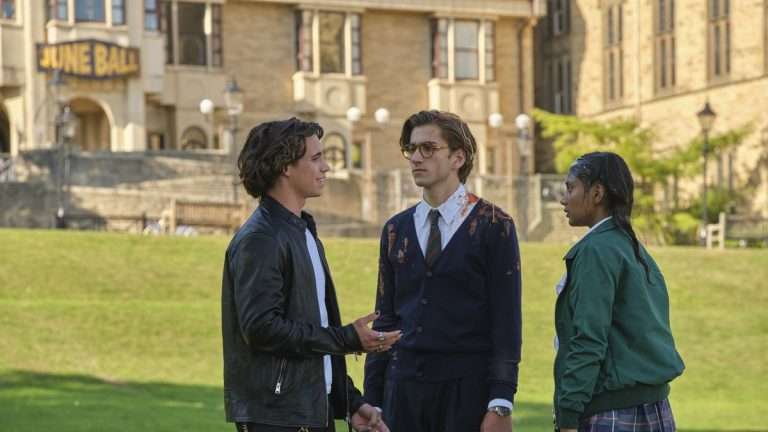This is the second of two adaptations based on BBC’s ‘Scoop of the Decade’—the interview between Emily Maitlis (host of BBC Newsnight) and Prince Andrew of the Royal Family—and the third such miniseries produced by Amazon Prime Video and Blueprint Pictures. Notably, it was released five months after Netflix’s own adaptation of the same material, Scoop, but their treatments are vastly different. “A Very Royal Scandal,” for one thing, is far more focused not just on the interview but also heavily on the two protagonists of this entire endeavor: Emily Maitlis (Ruth Wilson) and Prince Andrew (Michael Sheen).
A Very Royal Scandal (Miniseries) Episode1Recap:
The fateful day of the interview was on 14th November 2019. The entrance of the protagonists to the stage—at the cinema hall in Buckingham Palace—couldn’t be more different. While Prince Andrew (Martin Sheen), accompanied by his trusty aide Amanda Thirsk (Joanna Scanlan), walked briskly, with nary a remark (at the most a “fuck off” to one of his palace aides), Emily Maitlis (Ruth Wilson) is tense, getting out of her taxi, rushing through the security entrances of Buckingham Palace, barely managing to carry her suit and notebook, as well as her heels while running barefoot.
She is late and barely manages to hold her bearings while Andrew is making small talk with the Newsnight crew, who are setting up the stage. Maitlis enters the cinema room, unnoticed by Andrew but noticed by her colleagues Stewart Maclean (Eanna Hardwicke) and Sam McAllister, who barely keep their composure while listening to Andrew prattle with the cameraman. As Maitlis enters the loo, getting out of her jacket, she sits on the toilet seat, breathes slowly, and starts to prepare herself.
Where are the primary two characters before the Interview?
On 18th February 2011, Andrew’s golfing breakfast hour is interrupted by his PA informing that The Daily Mail would like a quote from him regarding the accusations brought against him by one Virginia Giufree nee Roberts, that on March of 2001, at the property of one Ghisane Maxwell, the partner of Jeffrey Epstein, Andrew had been photographed holding the waist of this woman. Now, the woman is accusing him of having slept with her without her consent. Andrew is frazzled because he cannot remember the incident and admits to the same thing in the case that The Daily Mail would print this. As it turns out, they do.
On 15th May 2019, Emily Maitlis gets out of bed at 6 a.m. and remains furious the entire day as she listens to how Teresa May’s Brexit deal is blocked. Emily’s anger and frustration persist until the recording of Newsnight that night when she interviews the Secretary of Trade. She is generally dismissive of their lack of planning and oversight. Her attitude, specifically an “eye roll,” leads to the BBC receiving a complaint about her called her “stroppy.” Her husband assured her that night she returned home and recounted that the incident would blow over.
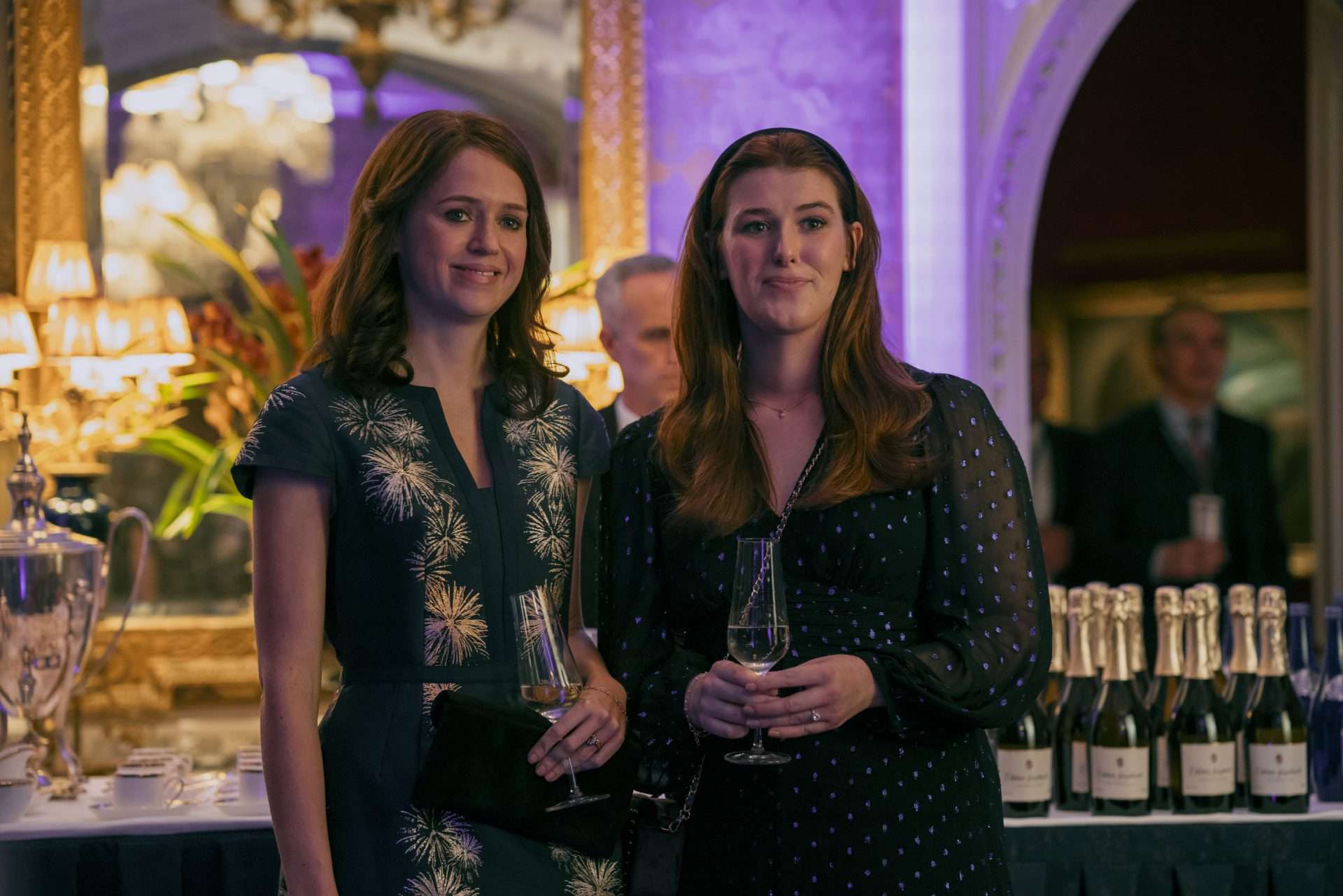
As Maitlis enters the BBC office the following day, the agenda is to publish anything on the front page other than Brexit. The vital bit amidst the conversations is Sam McAllister’s idea to interview Prince Andrew about the Pitch@Palace program, an initiative inviting entrepreneurs to St. James Palace to pitch their ideas and network with potential investors. But that kernel leads to the conversation that Andrew lost the Trade position back in 2011 due to his friendship with Epstein and the accusations by Giuffre, which now sparks Maitlis’ attention because she wonders why they hadn’t followed it up. Through her boss, she learns that the BBC doesn’t interview the royals anymore after the “Diana incident.”.
Meanwhile, we return to Andrew, where we see him deliver a speech welcoming the new entrepreneurs at his Pitch@Palace initiative while bringing his daughters Beatrice (Honor Swinton-Byrne) and Eugeny as “glamorous support.” The post-speech conversation, where he brags about being the entrepreneur in the family but is unable to voice any ideas of his own, shows that while Andrew is the charming one, he is also filled with bluster, which is also revealed in his speech, beginning in a slightly flustered fashion.
Through the daughters’ interactions, we also know that the papers are continuing to harangue Andrew about the Giuffre incident while also bringing up Andrew’s nickname of “Randy Andy,” which, while a cringy nickname, is debatable as to the person’s actual personality. Or at least that’s what Andrew’s daughter Beatrice and the audience surrogate are supposed to think.
What attracts Maitlis to Prince Andrew’s case?
Maitlis meanwhile returns to a mostly asleep house, somewhat disheartened upon learning there would be an inquiry about the incident. She receives a message from Wren informing her that Andrew’s press office has rejected the proposition for an interview if the Epstein segment is on the table.
When Maitlis texts back, furiously retaliating that they are not a breakfast show, Wren asks her to check on his finances, where she learns of Andrew having to sell off his Sunninghill Park estate for 15 million pounds. Further research shed light on the fact that the Duke’s ex-wife was knee-deep in debt, and through further digging into news articles, she learned that the Duke would take the aid of Epstein in settling off financial matters. This further trip down the rabbit hole leads her to a video of The Duke visiting Epstein in 2010, specifically after he was released from prison.
This leads the show to dovetail into a flashback sequence of 3rd December 2010, where he is shown visiting Epstein in a sequence straight out of a 1980s action movie with that steel blue color palette. The entire sequence is almost shrouded in pale blue light, and as they walk across from the living room to Epstein’s office, we see young girls in tennis uniforms presumably returning. The two men converse, with Andrew asking for Epstein’s aid in handling “Fergie’s” debt, promising that Andrew would settle it himself, but money is currently tight.
Epstein, at least as shown here, is fully aware of Andrew’s predilection, and it seems that almost all of Andrew’s acquaintances are always trying to somehow protect the man from the world. This is why he asks for the currency of the cash and the man’s phone number before reassuring him that it is “done.” We also see him reticent about mentioning any details about Epstein’s arrest in Florida, though his curiosity gets the better of him. Epstein shuts that line of questioning down before inviting him to stay till the 6th of next month, which Andrew accepts. After that meeting, the eventful photograph of the two of them walking across Central Park was snapped, which we saw Maitlis perusing through her phone on 10th August 2019.
How does Epstein’s death set all these events in motion?
It’s an eventful day because, on that day, the news broke of Epstein having hung himself in his jail cell, though Maitlis can’t rule out the possibility of him being murdered and Andrew possibly being involved in it. Andrew learns about this news while playing Charades with his family at one of his estates. What is revealing is that upon hearing this news from his secretary, Thirsk, the first question that strikes him and which he asks is, “Is this good for me or bad?” which transforms this scene as a key moment of insight into his character—a little kid who never grew up, never knew what consequences could pertain, and even the streak of selfishness within him resembled that of a kid.
At the very least, this is a chronic pattern of not taking responsibility, which Fergie voices when her conversation with Andrew regarding the phone call almost devolved into a tirade. It is thus further fascinating that Fergie exhibited loyalty to Andrew, even though she knows he didn’t go on the trip to Epstein’s way back in 2010 only to solve her financial issues. But both Maitlis and Andrew’s secretary, Thirsk, know that Giuffre will now go after Ghislaine and then the Duke of York with Epstein out of the way. Thirsk is still not budging from rejecting all meeting offers if Epstein is introduced within the conversations. Maitlis wants this interview as soon as possible, preferably before iTv gets its hands on it.
What convinces Amanda Thirsk to agree to the Interview?
But as it turns out, Andrew is very much beginning to feel the heat of the press and his own chequered past coming to haunt the lives of his daughter Beatrice. The press is especially vicious now because of the appearance of two somewhat revealing photographs painting Andrew in a very unflattering light. And as it turns out, even if Andrew’s family and loyal associates believe him, the world is reacting to the perception—Prince Andrew’s hand across the waist of a 17-year-old woman, a photograph snapped by a sex trafficker and pedophile, Jeffrey Epstein.
Well, that’s not a good look, even if Andrew is rightly frustrated if the Prince of Wales would call him to belittle and help him search for a solution, considering Andrew’s a war hero, while Charles (in Andrew’s words) smelled the roses and sh***ed his mistress. This is one vicious family. But as Fergie reminds him, the family might cut him off if Andrew doesn’t fight back.
Meanwhile, Amanda Thirsk is invited to a meeting with Sir Edward Young (Alex Jennings), the private secretary to the Queen, and Donald, the new press secretary. In that meeting, Young describes the royals as principals, with the family as a firm and themselves as protectors of the principals. According to Young, as voiced to him by Thirsk’s predecessor, the Royals lead a frictionless existence, so far away from normalcy that their interactions with the world itself are very different, which results in them exhibiting naivete and arrogance.
And the MO of these secretaries is to protect them from making these missteps or protect them from themselves. Essentially, Young strips away the rose-tinted glasses worn by Thirsk regarding the Duke, revealing his frequent trips to Epstein Island (or Lolita Island), his accusation of rape, as well as the accused having hired famous lawyer David Boies, who is scarily effective. Young plans to protect the monarch by any means necessary, even if that would mean the Duke becomes collateral damage. However, the Duke’s office must take the essential steps before legal proceedings begin against the Duke himself.
As it turns out, Thirsk finally does, and it didn’t take too long for the Duke to be convinced, either. They revoke their restrictions and invite the NewsNight crew to meet with the Duke to negotiate the interview. This plan doesn’t go well with the press secretary of the Duke, however, which leads to the Duke firing him. The negotiation between the Duke and the trio of McAllister, Maitlis, and Maclean was almost at an impasse because the Duke couldn’t fathom the veracity of conducting a one-hour interview until McAllister reminded him that an hour could bring much-needed attention to Pitch@Palace, to which the Duke readily agreed, while Thirsk hammered home the company line that the photo is fake. The biggest surprise for the audience is when the Duke asks whether any of the trio have been victims of abuse, and Maitlis remains conspicuously quiet.
We have seen her enter her home, activating a locking mechanism, while also being quite jumpy due to a stalking incident. By the time this event occurred, the stalker had been given a restraining order. Nevertheless, Andrew’s team agrees, giving the Newsnight team a two-day headstart. Rehearsing the interview makes both Cern and Maitlis convinced that they need to be more aggressive with the Duke but not question his association with Epstein too directly; otherwise, he would refuse to answer. Maitlis also selects her wardrobe by choosing a combat jacket, a color combination that she inferred the duke might find comforting.
Elsewhere at Buckingham Palace, Young is not too pleased with the decision of an interview and instructs the Queen’s press secretary to be present on the day of the interview. Finally, Wren informs Maitlis that she has procured the transcript of the Panorama interview of Virginia Giufree, where she describes her sexual encounter with Andrew on camera. Knowing that this segment would broadcast within three weeks, they realize they don’t have time to waste, but air their interview with Andrew before this comes out. Otherwise, the Palace might try all its might to ensure the interview never makes it to air.
A Very Royal Scandal (Miniseries) Episode 2 Recap:
How does Beatrice convince her father not to cancel the Interview?
The morning of the interview would be a rainy one. As Andrew walks outside the lawn to let his dogs relieve themselves, he gets an unwelcome intrusion in the form of a call from the Prince of Wales that leads him to a fit of rage. Both these siblings’ tiff left their respective war rooms in a tizzy while Andrew’s office called off the conference, interrupting Maitlis’ run and her peaceful morning.
Andrew, meanwhile, calls his daughter Beatrice to the home shared by him and his ex-wife Fergie. The consequent conversation reveals how much the Royal Family is less of a family and more of a system. Apparently, the only person who has ever supported Andrew is also the least likely person, according to him, but “even Her Majesty has her limits.” Beatrice convinces him to resume the interview because he would only be telling the truth that he did nothing wrong.
What happens in the Interview?
It does the trick because the conference is back on, interrupting a decked-up Maitlis trying to calm her dog down and breaking a vase in the process. As she hails a taxi, Maitlis is informed by Wren that she would have to include two alibis within the interview, with the one about him present at a pizzeria at Woking sounding suspiciously lifted from the Panorama piece. Maitlis vehemently retorts to not adding in alibis. Meanwhile, Andrew dresses up and asks Thirsk (standing outside his bedroom) how he should look and his preferred answering mode.
His consequent rant about how a bloke is supposed to keep track of “the woman he has bedded” is overheard by his daughter, who realizes that maybe her father hasn’t got this as handled as he has led them to believe. She was so right. This is why Thirsk’s almost motherly belief in Andrew feels almost tragic in retrospect, asking him to be himself, even though historically, it is never a good idea.
For Maitlis and Maclean, the game plan is to have a one-hour interview straight through. If the duke begins talking too much, interrupt and get back on track. And if possible, bring out the Trump card Wren had advised Maitlis to keep wedged between her script pages—the photograph of the Duke and Virginia Giuffre—to force him to talk about Epstein. But Maitlis’ nervousness is also matched by Andrew’s as he notices the Queen’s press secretary in the same room, watching coldly and possibly recording.
Credit to showrunner Jeremy Brock that he manages to dramatize a majority of the interview and keep almost the entirety of the Duke’s answers in that interview intact. Interestingly, the Duke is trying to dissociate himself from the Royal Family while clarifying that in 2000, Epstein was his guest at Sandringham. He is also trying to tone down his friendship with Epstein, making him out to be more of an acquaintance through Maxwell, Epstein’s girlfriend. Watching the dramatization of this interview is fascinating because every choice Andrew makes to paint himself as a bystander or someone unaware of Epstein’s crimes only lands him further in hot water. Sheen’s performance as the Duke also helps in that regard, as well as the reaction shots of the rest of the people in that room, except Thirsk.
This episode also intersperses flashbacks—whether those are repressed memories or realizations isn’t clear, but when asked about him staying at Epstein’s island, we get a scene of Epstein at a beach, massaged by a young woman or even scenes showing Maxwell’s house where Epstein is entertaining a gaggle of young women. But Andrew’s big blunder occurs when he is asked whether he regrets his friendship with Epstein, to which he categorically denies instead of apologizing (as is the expected norm according to the livid press secretary watching this train wreck of an interview).
Andrew believes that the friendship afforded him interesting company or provided him with useful opportunities. He also categorically denies ever having met Virginia Giuffre at Tramps Bar, having “no recollection of her.” Moreover, he overemphasizingly denies having visited Epstein’s Palm Beach House or that the women servicing him had been underage.
However, Andrew’s handling of being asked questions about Epstein, calling his manner “unbecoming,” or the fact that he doesn’t hesitate to state that he stayed at Epstein’s after Epstein had been convicted, in hindsight, definitely feels like the hammer-striking down hard. These are already major mistakes being made, and the fact that after the completion of the interview, Andrew would empathize with the inclusion of the alibis is just poor judgment.
Considering that those alibis consist of that famous dialogue of him being unable to sweat ever since the Falklands War due to an adrenaline overdose or the flimsy alibi of attending his daughter’s birthday party at a Pizza Express at Woking. Credit to the show again, it cuts to the editing room during those segments where they have to insert those moments. Credit again for showing the frustration exhibited by the editor in splicing those segments, especially considering that the continuity between those scenes is not maintained due to Maitlis brushing her hair back.
And more credit to Ruth Wilson for exhibiting Maitlis’ horror at realizing that her mistake might cost her this interview. But then again, as they look at the interview, they realize they have a goldmine. They recognize how proud Andrew is of his reasoning, especially the adrenaline overdose bit. Especially considering he didn’t even manage to craft an apology for Virginia Giuffre. It is no wonder that MacLean, at one instance, reassures Maitlis that she wouldn’t have bothered showing the photo. Andrew had already buried himself. The guileless nature of Andrew’s interview bamboozled even Maitlis herself. But as Maitlis expressed (not in the sentiment that Andrew expected possibly), it was very frank.
How does the British public react to the Interview?
But as Andrew reveled in a job well done by playing golf on his lonesome, memories flitted through his brain again. Like a child running away from reckoning, he decides to go out on a shooting weekend the next day. By the time he was preparing to leave, the BBC had already launched two trailers for the actual interview to be broadcast two days from then, and as Thirsk explained to him, the reaction was primarily positive.
The first crack in the armor begins with Sir Young meeting with Thirsk and almost non-subtly asking her to call off the interview to be broadcast, as, according to Donald, it was a “dog’s dinner.” But Thirsk still wouldn’t budge, believing it to be in Andrew’s best interest. As Andrew is busy hunting with his mates, the interview transcript would be sent out to journalists, and Twitter would be aflame, specifically regarding how the Royal family even allowed Maitlis to eviscerate Andrew quite like this. Thirsk, realizing that things have gone wrong, would try to contact Andrew, but by that point, he is knee-deep in hunting, and his phone would be unreachable.
By the time Andrew comes to know about the interview, it is through his mother that Britain has seen the car crash of an interview, and Andrew has become infamous, entirely at fault of his own. After all, when asked whether he had a message for Virginia Roberts, that would have been the final chance to provide an apology. Still, he notes that he has a thick skin in response to these allegations; considering that none of these events have happened, there is no point in providing a message. Talk about a diplomatic fuckup.
A Very Royal Scandal (Miniseries) Episode 3 Recap:
On 17th November 2019, Prince Andrew returns to his mansion, but instead of returning to his house, he makes a beeline for the church, a practice I don’t think he is very familiar with beyond Sunday Mass. But now he enters the church to pray, perhaps to give him strength for the absolute storm about to hit his life.
As it stands, he wouldn’t have to wait too long. While Fergie tries to cushion him by asking about the shoot and praising him for being so “honorable” in the interview, she does remark that he would need a legal team, as Virginia Giuffre is coming after him now, incensed because of the non-apology to her in the interview. Remarkably, Andrew remembers the interview differently because he felt he had apologized to her when, in reality, that had never been the case. Meanwhile, Amanda Thirsk is fired from her job as the Secretary of the Duke of York because, according to Young, she had failed in the basic MO of their jobs—to protect these people from themselves.
Clearly, Andrew had dug his grave on his own, but the damage could have been minimized if the interview hadn’t been allowed to air. Her refusal to do so sealed her fate. After all, one of the royal family members accused of “kiddie-fiddling” is almost a death sentence to the already unstable monarchy because even if Andrew hadn’t expressly stated it, the citizenry of Britain at that moment has voiced him either guilty or in close association with the crime.
Meanwhile, Princess Beatrice and Eugeny visit their parents for breakfast, where Beatrice pleads with her father to call off her wedding, even as Andrew’s objections fall on deaf ears. Even Fergie starts to doubt his innocence, even though the company line is that the media has “twisted his words.” However, Andrew explains that he was backtracking every second because he didn’t want to sound guilty.
What results, though, is Andrew meeting with the Queen and then the private secretaries chatting about the news of Andrew stepping down from all royal duties, including the military. Young specifically wants to get ahead of every other media and legal action by isolating Andrew and ensuring that the company line remains that he is focused on defending his name and accepting this new station of life with dignity. Inwardly, though, if one looks at Andrew’s reaction, with him furiously washing the dishes much to the confusion of his battalion of stuff, it feels like a man wholly unmoored from his reality.
Meanwhile, Emily Maitlis is on a high. After her interview blows up like wildfire around the world, she is interviewed by ABC News, and memes are made of her, though we realize that she is not receiving attention entirely. On 8 January 2020, she received the British Television Award for Network Presenter of the Year. But even then, the niggling thought in her brain gets amplified by one of the guests at the award ceremony voicing out how she didn’t mention “the victims.”.
Then again, for Maitlis, the victims are the women who suffered at the hands of Epstein and Virginia Giuffre, who is being interviewed about her sexual assault by Prince Andrew. For Thirsk, during her conversation while sharing drinks with Maclean, the victim is Andrew and his family. Andrew’s greatest crime, according to her, is that he had taken Epstein’s money and hadn’t apologized, but that still didn’t prove he had sex with a minor. She does ask in what world non-apologies equal guilt and that line is easily one of the more prescient lines of this show, and perhaps what this show is ultimately trying to get at—the effectiveness or lack of the court of public opinion.
Meanwhile, Andrew’s office hires a new legal team, and in that meeting, Andrew learns that there is a slim chance of Giuffre trying to ensure Andrew is tried in an American court, and Andrew’s legal team would have to ensure that doesn’t happen. Their second duty is to challenge any civil proceedings in the UK by trying damage control and re-establishing the Prince’s image as an honorable, duty-bound monarch. The slight hitch, though, is that Andrew has given up all of his royal duties. But his legal team, through buttering Andrew up by praising his Pitch@Palace idea, reassures him that he would be back on his feet.
Meanwhile, Princess Beatrice watches the Panorama interview of Virginia Giuffre, where the incendiary nature of the interview finally makes her realize that this will never end and that she can’t pause her own life for her father’s sins. She decides to resume her wedding. Meanwhile, Maitlis is also getting backlash from a section of the populace supporting the royal family, whose comments affect her son. He informs her that some comments threatened to come after her like her stalker did, which touched a nerve for him.
On 11 April 2020, during the height of the pandemic, Prince Andrew and his ex-wife are photographed packing food parcels and goodies to be sent to the local hospitals. This puff piece is responsible for rehabilitating his image, but Andrew is frustrated at the stasis of his life and his legal matter. Privilege being what it is, he could care less about wearing a mask or hugging people to show that he cares.
It is funny as a performance, despicable as a portrayal of a man so ensconced in privilege. It finally leads Andrew to lose his cool, screaming for this to be over and unable to reconcile with how “a girl I can’t even remember has so much power.” The cherry on the cake is one of the legal team members trying to correct his usage of the word “girl” and getting berated by Andrew. But Andrew then learns the news that Giuffre is charging him with battery, an accusation that properly enrages him.
Emily, though, has a crisis of conscience. On the one hand, her interview with Andrew has the adverse effect of scaring off any high-profile guests from BBC Newsnight, making it tougher for Wren and her team to secure interviews, especially in the middle of the pandemic. But more importantly, she is reminded of her stalker and the barrage of interviews and invasion of privacy she had to experience.
As a result, while it is not exactly similar, she could identify the parading of pain and the endless talking about the incident and how that adversely affected the victims of Epstein. She had to acknowledge that her interview with Andrew actually sidetracked the true focus of her investigation. She remarks that her only aim had been to ask the right questions, but Andrew’s arrogance and entitlement had been so ingrained within him that he couldn’t help himself. In the revealing conversation between Maitlis and her husband, we also notice their implicit understanding of their partnership and love for each other.
On 17th July 2020, Beatrice gets married, but while the marriage occurs, she requests her father to stay out of the photoshoots—especially the official ones with Granny and Grandpa. The firm has isolated him, and he has to live with that. But the firm’s worry is far more long-term. Liaising with Sir Young, Andrew’s legal team informs him that Giuffre’s team has filed a suit against Prince Andrew for sexual abuse under the Child Victims Act.
The legal team’s plan is to slow the process of the court documents being delivered in person to Prince Andrew while simultaneously getting time to build a case. Young reminds them that the monarchy wants this case done and dusted by any means necessary before the Golden Jubilee. The legal team executes their plan by removing Andrew from his domicile early in the morning and driving him away from his house to presumably their winter home in Sandringham.
A Very Royal Scandal (Miniseries) Episode 3 Ending Explained:
Does Prince Andrew settle the case with Virginia Giuffre?
On 24 November 2021, Sir Young and Andrew’s entire legal team, along with Beatrice representing her father, met to discuss whether going head-to-head with Giuffre’s team in the United States would be beneficial. Their representative in the States responded in the negative, as the Prince would be brought to the stand. While it would allow for a trial, it would also expose The Crown, and Young and Beatrice do not want The Crown to be anywhere near this vicinity.
However, Beatrice gets a call from a harried and angry Andrew, effectively under house arrest, ordering her to instruct the legal team that they would go on trial and clear his name. But by this point, they are aware of his bluster, as evidenced by one of the team members instructing the others to start drawing up a deal. Meanwhile, Maitlis enters the Newsnight Office the next day, gifting her colleagues with monogrammed mugs denoting “No Sweat, Your Highness” as her final parting gift. She would leave the BBC after 20 years to try something new, maybe parenting.
On 28th February 2022, Andrew’s family—consisting of Andrew, Fergie, Beatrice, and Eugeny—is visited by Sir Edward Young. Young informs them that Giuffre’s legal team has agreed to an out-of-court settlement. Her Majesty has instructed for a press release to go out soon, but the case is closed as of now.
Young refuses to divulge the settlement amount paid, while Andrew tries to convince Young to let him fight to clear his name; otherwise, he would look guilty forever. However, according to Young, this is close to the Queen’s Platinum Jubilee, and there is too much at stake for Andrew to wage a legal battle. The Queen also announces her wish for Andrew not to attend her Platinum Jubilee, which would be a distraction. From the expression on Beatrice’s face, we can presume she had also been expecting this.
The show ends with Maitlis walking out of the BBC office and on the way to join her family and watch the Queen’s Platinum Jubilee. At the Royal Lodge, we see Andrew looking out of his window, replaying the final question of the interview and his answer to Virginia Giuffre. Is he wondering what it could have been had he just apologized? We would never know.
A Very Royal Scandal (Miniseries) Review:
The comparison with the Philip Martin directorial “Scoop” is almost inevitable, but what strikes you while watching “A Very Royal Scandal” is the difference in treatment. For one, due to the adapted material and the protagonists, the points of view are vastly different. “Scoop” had been adapted from the book written by former Newsnight editor Sam Mcallister.
As a result, the movie has a faster pace precisely because it follows McAllister trying all the tricks in the trade to secure that interview before finally leading into the interview itself. It also is a bit more sensationalized in both pointing out the mistakes Andrew made during the interview and subliminally acknowledging Andrew’s guilt via a very revealing scene of Andrew’s bed filled with teddy bears. The movie also wouldn’t deal too much with the fallout of the interview because that wasn’t in the purview of the screenplay, and it also takes cinematic liberties by shifting the timelines.
It’s not that Jeremy Brock’s screenplay doesn’t take cinematic liberties concerning the incidents being depicted. However, Brock’s screenplay and Julian Jarrold’s direction create a specific staging and framing that reminds you of another Netflix offering dealing with the British Royal Family: “The Crown.” Specifically in how Morgan deals with balancing the historical events and showcasing them with as much accuracy as possible while allowing for his flourishes to shine behind closed doors, between the conversations of the characters that aren’t on record (Morgan’s emphasis on accuracy becomes dodgier, especially during the last two seasons of “The Crown,” however).
Maitlis’s interactions with her colleagues or Andrew with the rest of his family feel realistic, albeit laborious (in some instances). Considering that Maitlis is involved as an executive producer behind the scenes produces a film that might feel almost too indulgent in exploring Maitlis’ character, bordering on too admiring rather than self-effacing. There are also unique moments of candidness within the screenplay, and Ruth Wilson’s performance stands out.
Prince Andrew is depicted as an overgrown man-child, naive in the way of the world as only a member of the Royal family could be. There are times when the show almost feels like stretching the humanizing of the character a bit too much. Sheen, through Andrew, depicts the arrogance radiating off Andrew as naturally as wearing a glove and even how his bluster and lack of empathy override his volition and common sense. There is a hint of cluelessness within Andrew’s character that amounts to dangerous levels of cavalierness and ignorance that unwittingly reveal themselves in the interview.
I appreciated how the show dealt with the logistics of the interview by showing both the actual interview room and the conversation between Maitlis and her colleagues in the edit room. That scene turned out to be the moment of realization for these characters in understanding the bombshell they are about to drop—adorned within the guilelessness of Andrew’s pontification.
However, the show’s chief attraction and what separates it from a “Scoop” is exploring both the inception and the fallout. Crucially, scenes before the interview dealing with both Andrew and Maitlis set up their frame of mind and necessary context before the inciting incident takes place—Epstein’s hanging. In exploring Maitlis’ emotional depth and vulnerability, I felt that the show did not show her aggressiveness or what made her so terrifying as a journalist quite as clearly as it should have.
The exploration of Andrew and, more than that, the surrounding cast of the Royal Family is given a textured setting and compelling plot threads to follow through, more so post the interview, when the Royal family tries to right the ship and to plug a massive hole in a sinking boat. Due to the show not shifting timelines like the film “Scoop” had done for dramatic effect, the show could also explore the fallout of the interview as the world rolled into the pandemic through the eyes of both Maitlis and her family, as well as through Andrew and his strained relationship with his family.
Maitlis’ own experiences with her stalker and her feelings about this abuse and breach of privacy are also given ample space. However, the dialogues describing how those conflicting emotions integrate with how her interview shifts the focus away from the victims of Epstein feel strangely clunky. It cannot be denied that the show suffers from clunky and painfully obvious expositionary dialogues. However, its dry wit and some comedic instances are genuinely hilarious, especially concerning Andrew’s observations about a certain member of the royal family. Its observations, too, regarding the fallout of the interview are appropriately nuanced, showcasing the adverse effects of the interview both from the perspective of the BBC and the Royal Family.
Overall, “A Very Royal Scandal” is engaging television precisely because of the scintillating performances produced due to the stellar cast. It, however, doesn’t entirely take away from the feeling of a story being a tad bit too long than necessary. As a show depicting a scandal, I appreciated how it sidesteps the obvious sensationalist route and goes for the more subdued one, which works for most of its three-hour runtime.

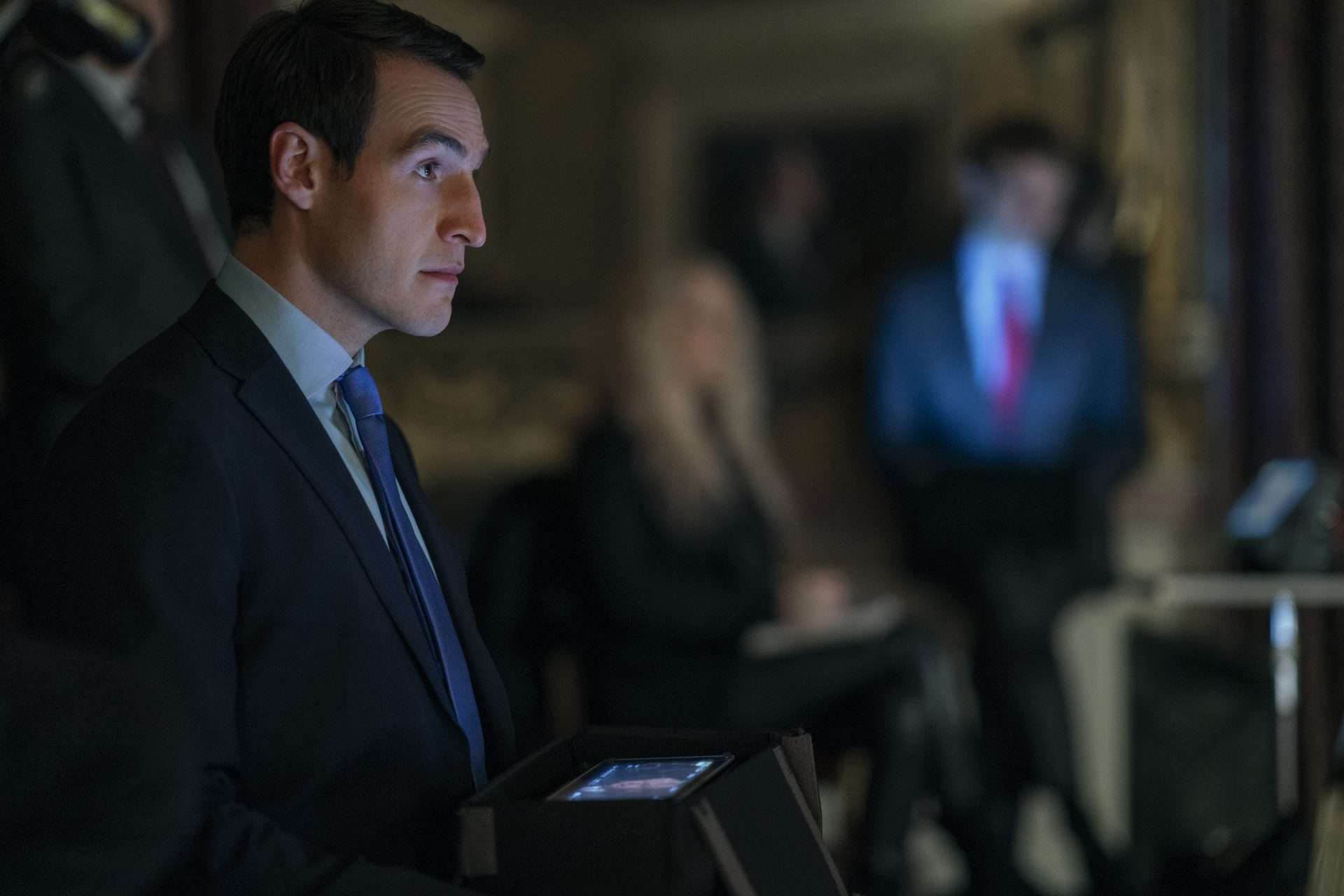
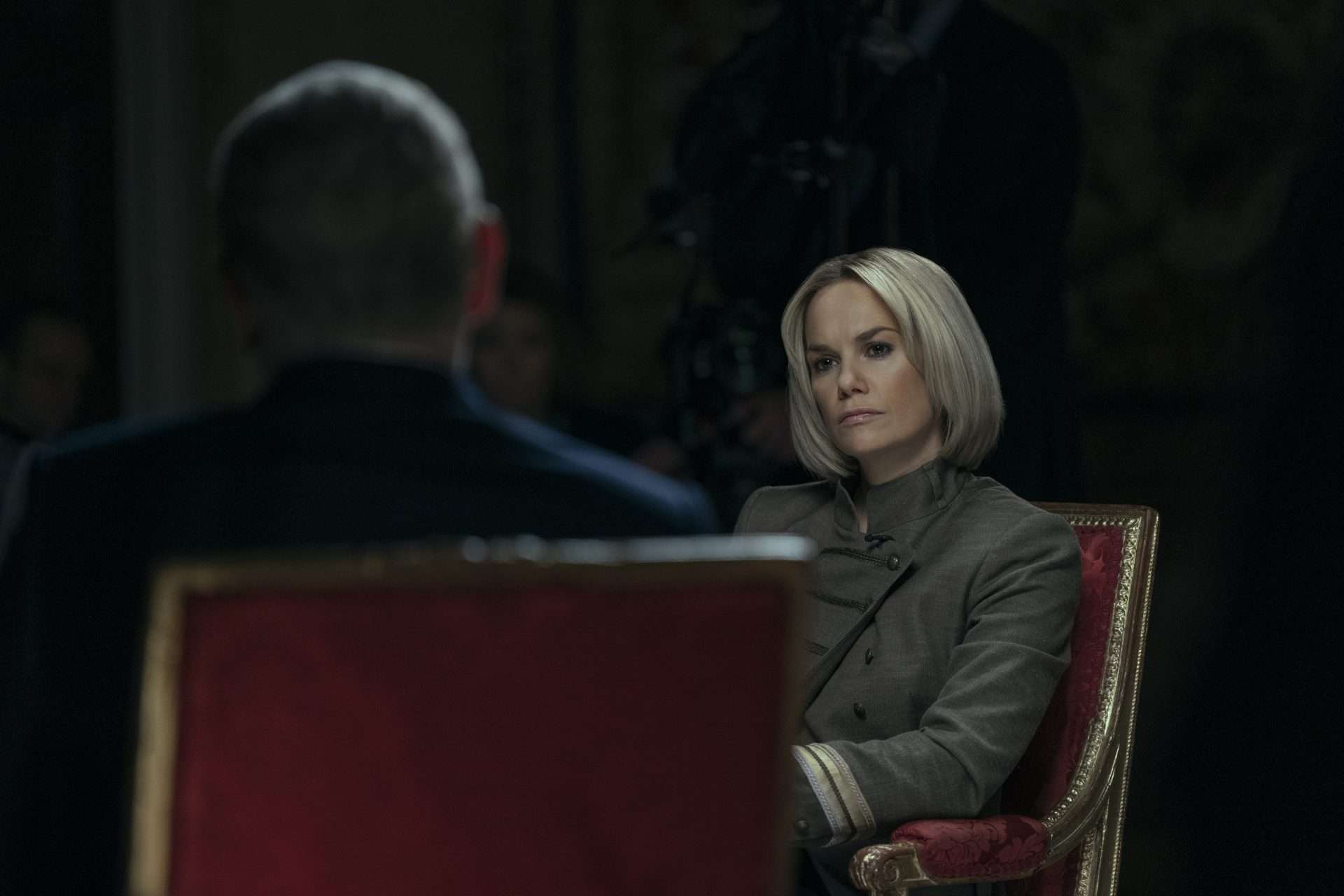
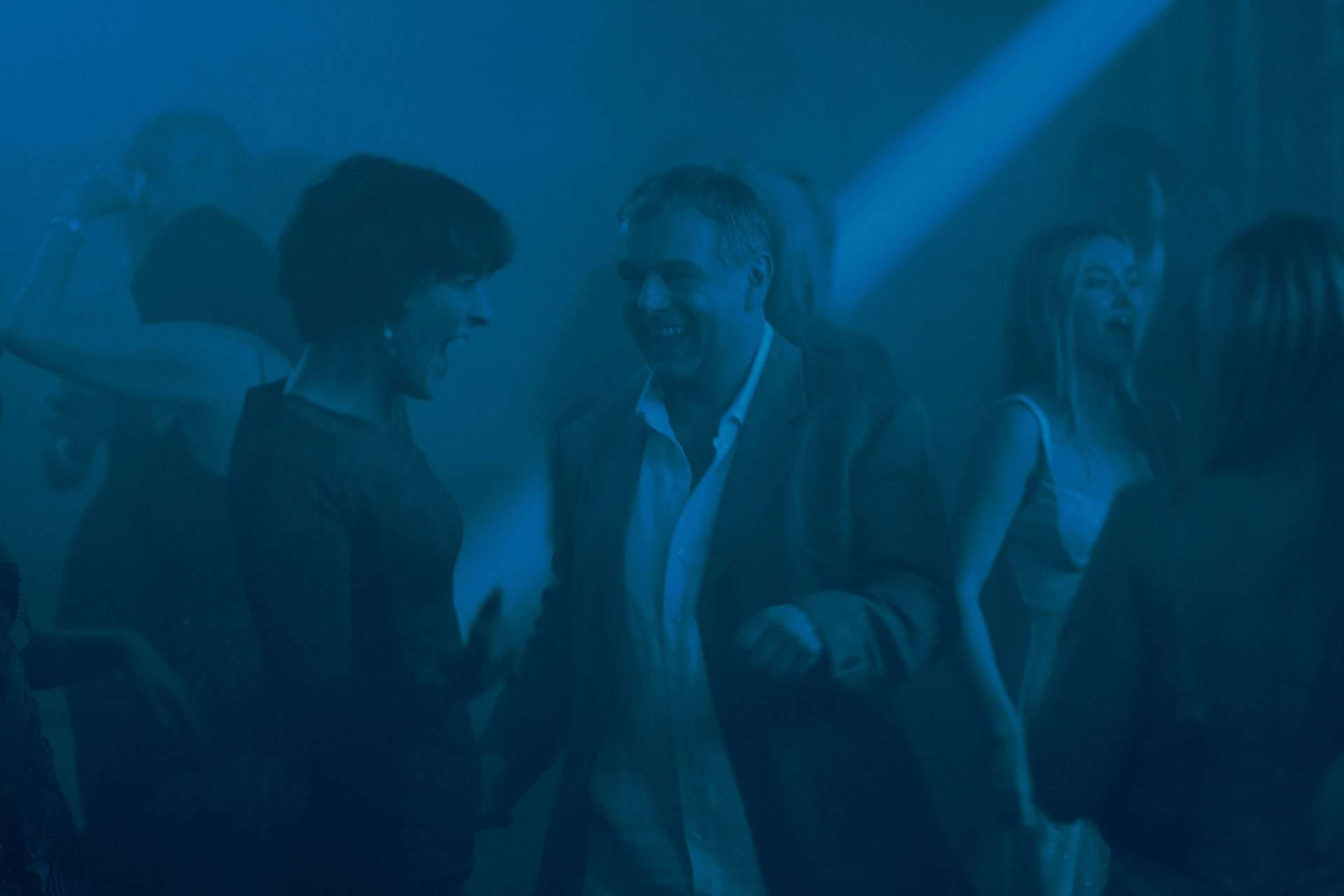
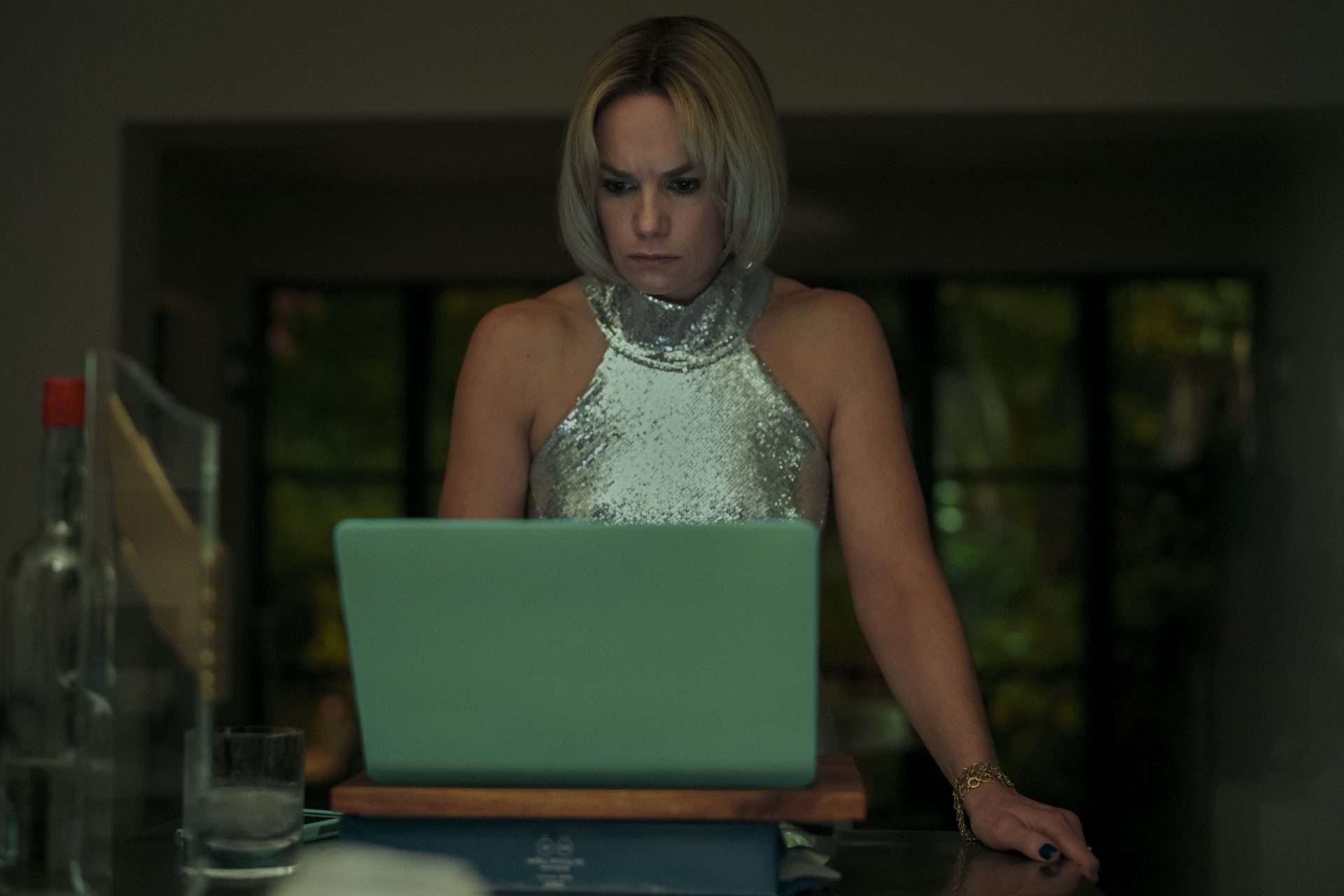
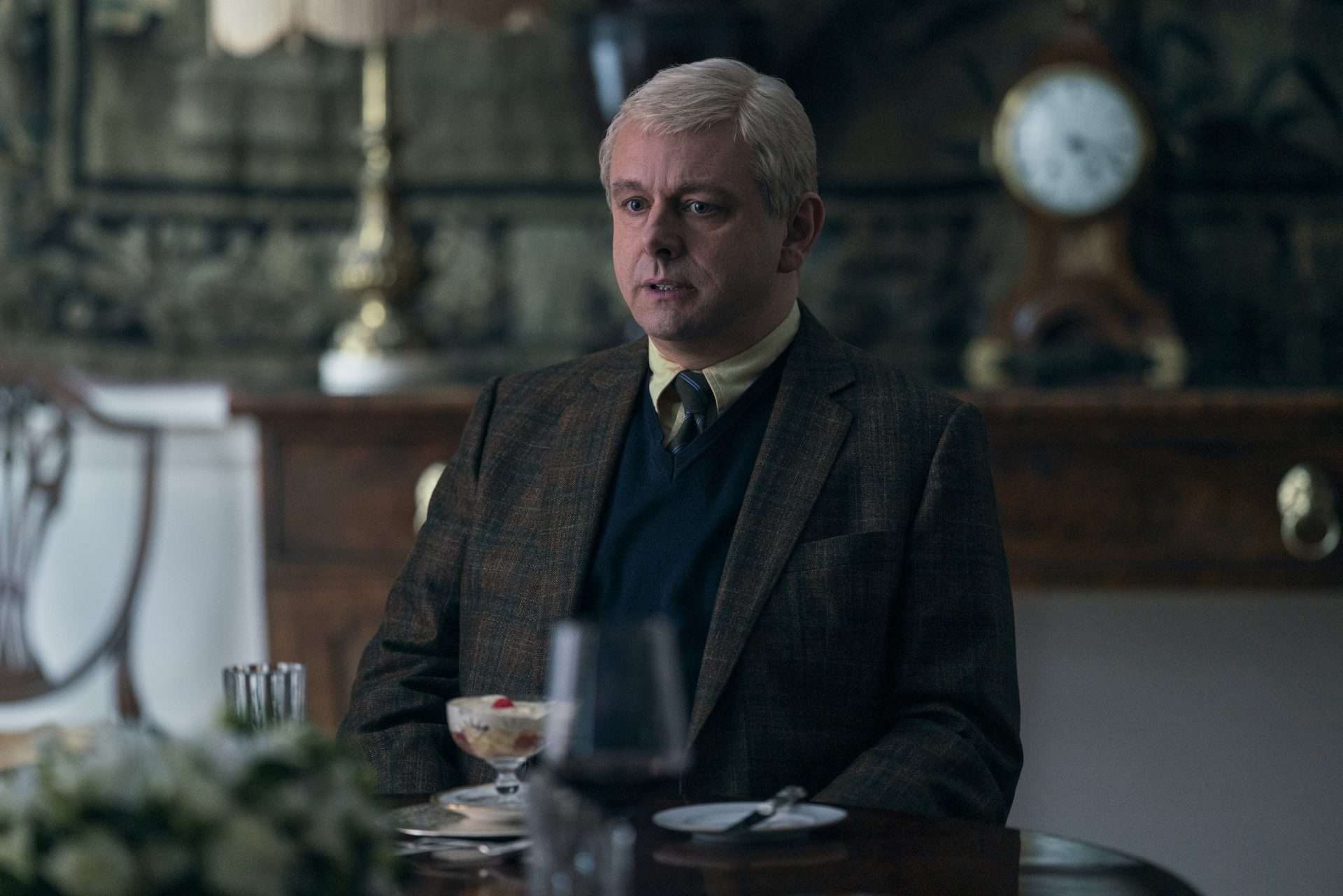



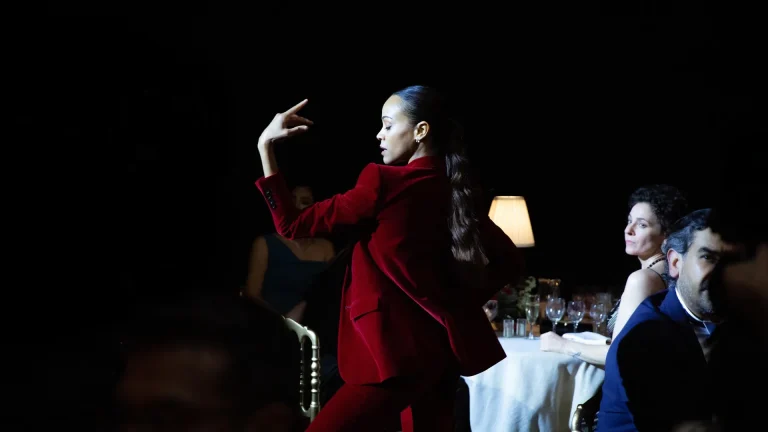
![The Great Hack Netflix [2019] Review – An Important Subject Impaired by the Questionable Perspective](https://79468c92.delivery.rocketcdn.me/wp-content/uploads/2019/08/The-Great-Hack-768x432.jpg)
